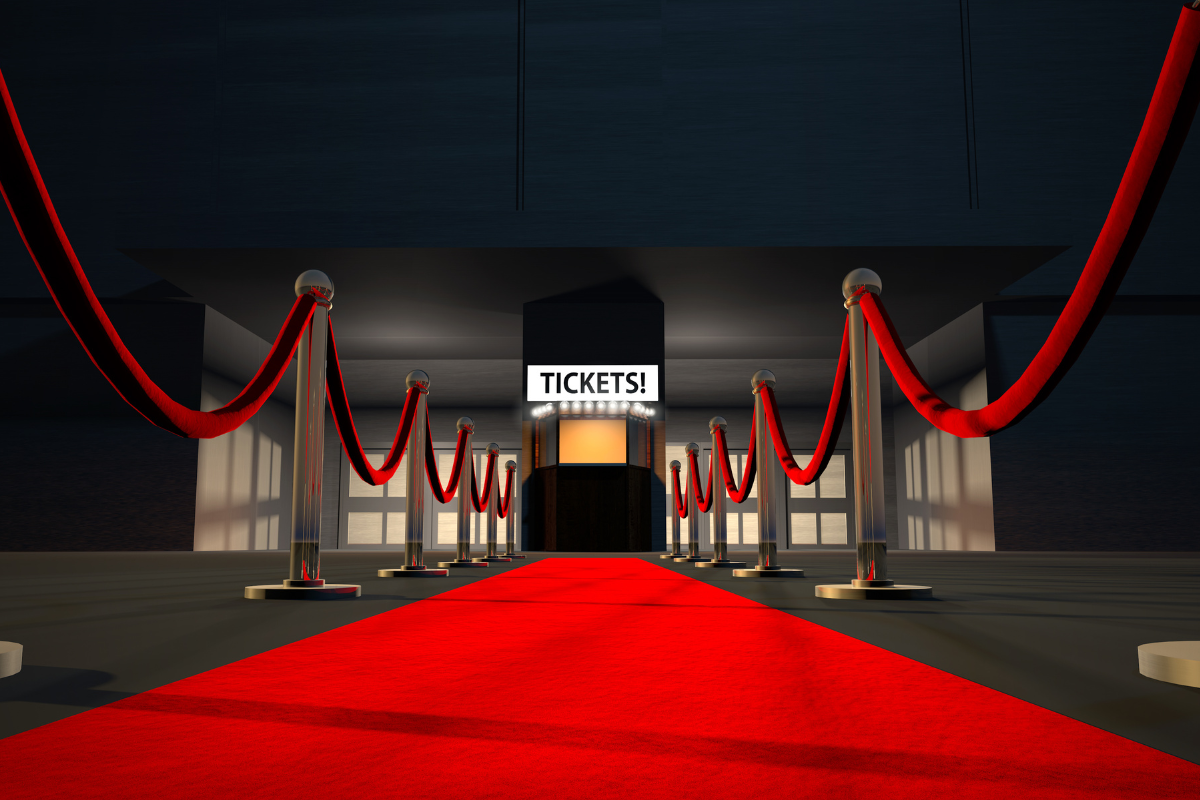Have you ever found yourself with extra concert tickets on your hands, unsure of how to sell them? Whether it’s due to a change of plans or an impulsive buy, there’s a safe and effective way to ensure your tickets find a new home. This guide will walk you through the ins and outs of selling concert tickets in English, offering tips and strategies to make the process as smooth as possible. Let’s dive in and turn those spare tickets into cash!
Choosing the Right Ticket Platform
Finding the perfect ticketing platform to sell your concert tickets is crucial for maximizing profit and ensuring a smooth experience for both you and your buyers. The ideal platform should offer not only user-friendly interfaces but also comprehensive features that cater to your specific needs. Whether you’re an established event organizer or a newcomer to the scene, understanding the differences between available platforms can significantly impact your success.
First and foremost, consider the fees associated with each platform. While some may offer lower upfront costs, they might compensate with higher final sale fees, cutting into your profit margins. Additionally, the visibility your event receives on a platform is paramount. A platform with a large, engaged user base can significantly increase your tickets’ exposure, driving up sales. Finally, look for platforms offering robust analytics tools. These can provide invaluable insights into your sales patterns, helping you to strategize more effectively and adjust your marketing efforts on the fly.
Another aspect to consider is the level of customer support provided. A platform that offers dedicated support can be a lifesaver in the event of any issues or last-minute changes. The right ticket platform acts as a partner in your event’s success, not just a service provider.
Comparative Analysis of Ticket Platforms
When choosing a ticket platform, it’s beneficial to conduct a comparative analysis to ensure you’re getting the best deal and the most suitable features for your event. Consider creating a table to compare various aspects such as fees, user base size, analytics capabilities, and customer support quality. This straightforward assessment can help narrow down your choices and select the best platform for your needs.
| Platform | Fees | User Base | Analytics | Customer Support |
|---|---|---|---|---|
| Platform A | Low upfront, high final | Large | Advanced | 24/7 |
| Platform B | Fixed rate | Medium | Basic | Email only |
| Platform C | No upfront, moderate final | Small | Moderate | Phone & Email |
| Platform D | Membership fee | Very Large | Extensive | Dedicated account manager |
| Platform E | Variable | Large | Custom reports | FAQ & Forums |
Setting the Perfect Price Point
Setting the correct price for your concert tickets is crucial for maximizing your profit while ensuring the event is accessible to your target audience. The perfect price point strikes a balance between affordability for fans and profitability for you. It requires careful consideration of several factors, including the artist’s popularity, venue size, and the average market price for similar events. Understanding your costs is also essential to ensure you cover expenses and achieve your financial goals.
Conducting thorough market research is the first step towards setting an optimal price. Look at the pricing strategies of similar events in your area or within the same genre. It’s important to consider the demand for the artist or band. High-demand acts can command higher ticket prices, but overpricing can lead to unsold tickets, damaging both your revenue and the event’s atmosphere. Conversely, underpricing tickets might sell out quickly but leave money on the table and potentially undervalue the experience.
Dynamic pricing strategies can also play a vital role in maximizing profits. This involves adjusting ticket prices in real-time based on demand, similar to airline tickets. Early bird specials, VIP packages, and tiered pricing models are effective ways to cater to different audience segments while boosting overall sales. Remember, the goal is to set a price that reflects the value of the experience you’re offering, encouraging swift sales without discouraging potential attendees due to high costs.
| Strategy | Pros | Cons |
|---|---|---|
| Early Bird Pricing | Encourages early purchases, improves cash flow | May undervalue tickets if set too low |
| VIP Packages | Increases revenue from high-spending customers | Limits accessibility for average fans |
| Dynamic Pricing | Adjusts to demand, maximizing profit | Can lead to customer dissatisfaction if prices rise sharply |
| Flat Pricing | Simplicity for buyers and sellers | Potential for lost revenue or unsold tickets |
| Tiered Pricing | Caters to different budget levels | Complexity in management and customer perception |
Leveraging Social Media Marketing
Social media marketing stands as a pivotal element in the modern strategy for selling concert tickets. With billions of users across platforms like Facebook, Instagram, and Twitter, the potential audience is vast and varied. The key to maximizing your profit lies in not just reaching this audience, but in engaging them effectively. Crafting compelling content that resonates with your target demographic can significantly amplify your ticket sales.
Firstly, understanding your audience is crucial. Tailor your content to reflect their interests and preferences, making it relatable and shareable. Engagement is the currency of social media; therefore, encourage interaction by posing questions, creating polls, and responding to comments. This not only boosts your visibility but also fosters a community around your event.
Secondly, leveraging targeted ads can propel your ticket sales to new heights. Social media platforms offer sophisticated advertising tools that allow you to segment your audience based on demographics, interests, and behavior. By optimizing your ad campaigns, you can ensure that your message reaches those most likely to purchase tickets. Remember, the ultimate goal is to convert followers into attendees, making every post, ad, and interaction count towards building anticipation and excitement for your event.
Enhancing Engagement Through Visual Content
Visual content plays a significant role in capturing and maintaining the attention of your audience. High-quality images, engaging videos, and eye-catching graphics can make your event stand out in a crowded social media landscape. Behind-the-scenes content, performer interviews, and sneak peeks can particularly drive interest and anticipation, making your social media channels a go-to source for exciting updates related to your event.
Maximizing Impact with Influencer Collaborations
Influencer collaborations can significantly extend the reach of your social media marketing efforts. By partnering with influencers who resonate with your target audience, you can tap into their followers, creating a ripple effect that amplifies your message. Select influencers carefully, focusing on those whose brand aligns with your event’s values and aesthetics for the most authentic and impactful collaboration.
| Strategy | Platform | Expected Outcome |
|---|---|---|
| Engaging Content | Instagram, Facebook | Increased interaction and shares |
| Targeted Ads | Facebook, Twitter | Higher conversion rates |
| Influencer Collabs | Instagram, TikTok | Extended reach and credibility |
| Visual Content | Instagram, Pinterest | Greater engagement and interest |
| Interactive Posts | Facebook, Twitter | Community building and loyalty |
Ultimately, leveraging social media marketing requires a blend of strategic planning, creative content creation, and active community engagement. By focusing on these elements, you can not only sell tickets more effortlessly but also build a loyal fan base eager to attend future events. Remember, the goal is to create an immersive online experience that translates into real-world excitement and attendance. With the right approach, social media can become your most powerful tool in the event promotion arsenal.
Offering Early Bird Discounts
One of the most effective strategies for selling concert tickets is to offer early bird discounts. This approach not only incentivizes fans to purchase tickets ahead of time but also helps in generating buzz around the event. By setting a deadline for the discounted rates, you create a sense of urgency, encouraging potential attendees to act quickly. It’s important to clearly communicate the terms of the offer, including the discount rate and the expiration date, to avoid any confusion.
Early bird discounts can also be tiered, providing deeper discounts to the first few buyers, then gradually decreasing the discount amount as the event date approaches. This method rewards your most eager fans and can significantly boost your initial ticket sales. Additionally, early sales provide you with a clearer picture of attendance numbers, aiding in more accurate planning and execution of the event. To maximize the impact of early bird discounts, promote the offer through various channels such as email marketing, social media, and your event website.
Maximizing Impact with Strategic Early Bird Pricing
Implementing strategic early bird pricing involves more than just offering a discount; it’s about understanding your audience and tailoring the offer to their behaviors and preferences. Analyzing previous events’ sales patterns can help you determine the optimal timing and discount rate. Furthermore, leveraging social proof by showcasing the number of tickets sold or highlighting testimonials from early purchasers can amplify your sales momentum. Remember, the goal is to create a win-win situation where your audience feels they are getting value for their money, and you are boosting your ticket sales well in advance of your event.
| Discount Tier | Discount Rate | Deadline |
|---|---|---|
| Super Early Bird | 30% | 3 months before event |
| Early Bird | 20% | 2 months before event |
| Pre-Sale | 10% | 1 month before event |
| Group Discount | 15% | 2 months before event |
| Last Minute | 5% | 1 week before event |
By strategically offering early bird discounts, you not only secure early revenue but also build anticipation and demand for your concert. Remember, the key is to find the right balance between a compelling offer for your audience and maintaining the profitability of your event. Careful planning, alongside effective promotion of the early bird discount, can set the stage for a successful and memorable concert experience.
Managing Unsold Tickets Strategically
In the realm of event management, unsold tickets represent not just lost revenue but also missed opportunities. The key to maximizing profit lies not only in selling out but in handling the unsold tickets with strategic finesse. A well-thought-out strategy can turn potential losses into valuable assets, ensuring that every ticket, sold or unsold, contributes to the event’s success.
First and foremost, dynamic pricing is a powerful tool in your arsenal. By adjusting ticket prices in real time based on demand, you can stimulate sales during slower periods. It’s essential, however, to communicate these changes transparently to avoid alienating your audience. Additionally, consider last-minute deals to capture the attention of the spontaneous buyer, a segment that can significantly boost your sales figures in the eleventh hour.
Another tactic is to leverage the power of partnerships. Collaborating with local businesses or influencers can extend your reach and give your tickets the final push they need. These partnerships can be especially effective when coupled with exclusive offers or promotions, making your event the talk of the town.
Additional Insights on Unsold Ticket Strategy
Understanding the psychology behind ticket purchases can further refine your approach to managing unsold tickets. Factors such as FOMO (fear of missing out) can be powerful motivators for potential attendees. Creating a sense of urgency or exclusivity around your event can convert those on the fence into ticket holders. Additionally, analyzing past sales data can provide invaluable insights into buyer behavior, allowing for more targeted marketing efforts in the future.
| Strategy | Description | Expected Outcome |
|---|---|---|
| Dynamic Pricing | Adjusting ticket prices based on real-time demand | Increased sales during slow periods |
| Last-Minute Deals | Offering discounted tickets close to the event date | Attracts spontaneous buyers |
| Partnerships | Collaborating with businesses or influencers to promote tickets | Extended reach and boosted sales |
| Exclusivity Offers | Creating a sense of urgency or limited availability | Stimulates FOMO, increasing purchases |
| Data Analysis | Examining past sales to understand buyer behavior | More targeted and effective marketing |
In conclusion, managing unsold tickets requires a blend of creativity, flexibility, and strategic thinking. By employing dynamic pricing, leveraging partnerships, and understanding the psychology of your audience, you can transform unsold tickets from a liability into a strategic advantage. Remember, every ticket, whether sold at full price, discounted, or as part of a promotion, brings value to your event. With the right approach, even the challenge of unsold tickets can be turned into an opportunity for maximizing profit and enhancing the event experience for all involved.



Leave a Reply